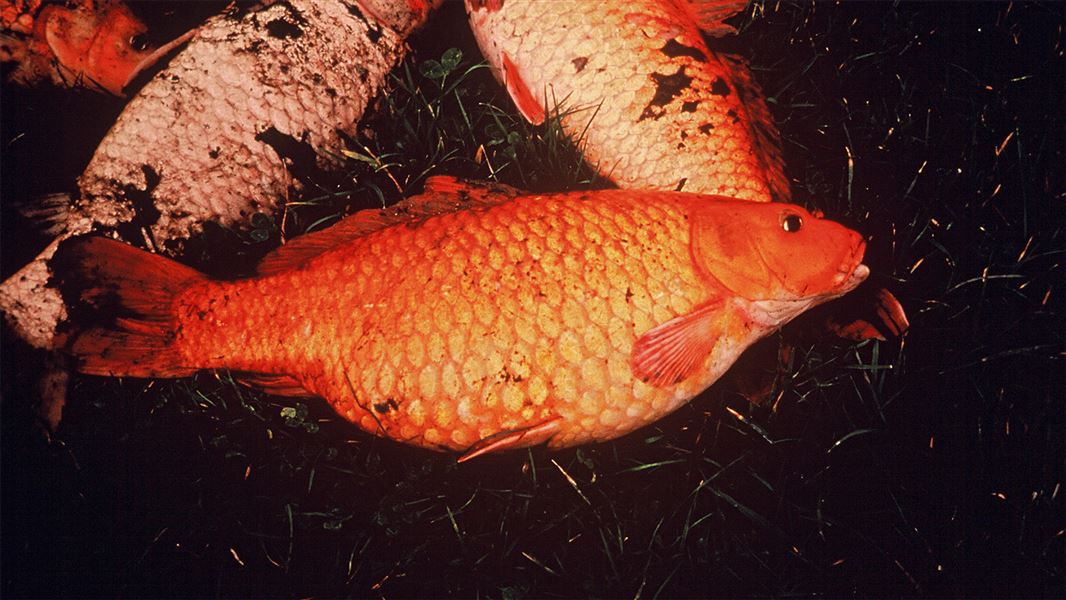Archived content: This media release was accurate on the date of publication.
Date: 09 February 2022
Koi are an introduced noxious pest fish species which breed prolifically and are found in lakes rivers and streams across the Waikato. Koi churn up sediment to impact water quality, consume native aquatic plant species, and compete with other indigenous fish for food.
The new project, focused on several lakes which are part of the wider Waikato River system, sees the Department of Conservation (DOC) partner with Te Riu o Waikato, Waikato Regional Council (WRC) and Waikato River Authority (WRA). WRA has co-funded the $1,319,682.50 project through a $488,750 grant, with DOC, WRC and Te Riu o Waikato also contributing financially and with in-kind funding totalling $830,932.50 over the course of three years.
Kerry Bodmin, DOC Freshwater Biosecurity Co-ordinator, says the four-year project will start this summer, and go beyond the existing work programmes DOC and WRC have in place for koi carp management.
“This integrated project is focused on learning by management; the removal of fish from waterways using traditional and new methods, and filling knowledge gaps to assist in managing koi numbers,” Kerry Bodmin says.
“Our goals for this project include reducing the rate of spread of koi by prioritizing the installation of barriers, and supporting two community-led koi removal projects.
“Partnering with mana whenua, through Te Riu o Waikato, is vital to this project and we’ll be working with them on trialling ways we can remove the koi from the waterways using long nets and disposing of the fish carcasses.”
Koi will also be removed from known spawning sites, and access to those sites will be restricted to hamper reproduction of the fish.
Another important aspect of the project is biomass counts – put simply, how the koi population can be measured.
Te Riu o Waikato Chair Tawera Nikau says Waikato-Tainui have an important connection to the Waikato River and mana whenua are enthusiastic about partnering in the project to curb the pests.
“Koi are a real challenge across our rohe, and this trial also presents us with some employment and economic opportunities for iwi, hapu and whanau.
“We’re excited to be part of it and welcome the long-term commitment of funding to learn more about how we can control these fish and reduce them in our awa.”
WRC spokesperson Councillor Stu Husband says the organisation works collaboratively with DOC and other key stakeholders to manage and reduce the impact of pest fish – including koi – in freshwater systems at high-value biodiversity sites in the region.
“We’ve contributed $250,000 for the 2022 financial year to efforts to manage koi carp – an investment we’re proud to make.”
WRC also provides landowners with advice and information on the threats posed by freshwater pests.
The Waikato River Authority is one of the largest funders of environmental restoration projects in the Waikato and Waipā catchments.
In 10 years, the Waikato River Authority has funded more than $50 million to more than 300 projects that will help restore and protect the Waikato and Waipā rivers.
The Waikato River Authority supports a collaborative and coordinated approach to the restoration of the catchment.
Te Ture Whaimana (Vision and Strategy for the Waikato River) is the primary environmental direction setting document for the Waikato River catchment. The Waikato River Authority is the guardian of Te Ture Whaimana.
Contact
For media enquiries contact:
Email: media@doc.govt.nz
